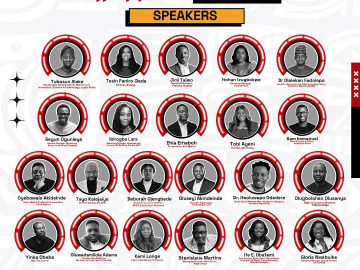When I first saw the shot of Donald Trump’s blood-smeared face as he pumped his fist in the air post–assassination attempt, I wondered how long it would be before it ended up on a T-shirt.
It was only a few hours before Barstool Sports’ Instagram account posted a T-shirt celebrating that photo, with the caption “If You Come at the King You Best Not Miss,” from fellow right-leaning Instagram account Old Row Official (which has several versions with several different slogans).
Then came the unofficial official branded merchandise: limited-edition sneakers depicting the aftermath of Trump’s assassination attempt. Relatedly, in February, Trump made a rather unorthodox campaign stop at Sneaker Con to introduce what he dubbed the first official Trump footwear.
“Cool,” I thought, “we’re monetizing assassination attempts now,” because whether you like Trump or not, an assassination attempt on a former president and the eventual 2024 Republican nominee—and one in which a rally attendee was brutally killed in front of his family—should be, in my opinion, at least met with a certain amount of … decorum? Even still, this was exactly what I expected, because this is America now: land of the free market and home to a population that will monetize … anything.
In many ways, Trump and his natural inclination to monetize and sell anything and everything—Bibles! Digital trading cards! Steaks! Pieces of his mug shot suit!—is a bit of a homegrown monster. Because for some time now, America has been flirting with the limits of what we won’t monetize.
It’s not just Trump: The American obsession with monetization transcends party lines.
There’s earning potential in pregnancy announcements, deaths (those that just happened …and infamous ones in the past; even those infamous deaths in the past you are probably responsible for), true crime, activism, and gun violence. Of course an assassination attempt would join the ranks.
Hustle! Grind! The left does it. The right does it. At some point, it brought the political spectrum together, evident in the time Gwyneth Paltrow (who has rebranded herself as someone who’ll sell anything headline-worthy) and conspiracy theorist Alex Jones (who in part built his personal brand off the backs of school shooting victims and their families) hawked (no, not hawk tuah-ed …) the same supplements branded differently for their ideologically opposed audiences.
While it might make us sleep better at night to pretend that historically, politics has always been first and foremost about ideology, politics has always been about selling us an idea (hope, for example) or a brand (Camelot, anyone?) that, for better or worse, ends up being monetized. It’s been done for years. Trump’s just been the most openly brazen with it.
Similarly, we like to pretend that art is pure and exists solely for the sake of expression, but even the word “patron” derives its meaning from the ruling class that supported, commissioned, and often dictated the work of artists. Like politics, creating has always been tied to commoditization, which brings us to … content creators.
Barstool Sports, the Instagram account where I first spotted that Trump-assassination-attempt T-shirt, has built a media empire by identifying, employing, and developing a bevy of content creators, a more palatable term for influencers.
A 2019 survey by Harris Poll and Lego found that American children were three times more likely to want to be YouTubers than musicians. By last year, “influencer” was the top career choice for Gen Zers, and 60 percent of Americans aged 13 to 38 said they’d enjoy influencing.
While we can fool ourselves into thinking that influencing is about “creating content,” it’s really about creating a commodity. While plenty of creatives use social media to grow their platforms or brands, the specific career of “influencing” is about influencing people to buy things for a more optimized life.
College students blithely shout out the brands they wear in OOTD videos. Middle schoolers show off their Sephora hauls. Family bloggers have branded their miscarriages. It’s become so mundanely second-nature to monetize your life—documenting and commoditizing every personal detail, win, and trauma—that Trump and the cohort of intrepid entrepreneurs monetizing an assassination attempt that left him injured and an American citizen dead doesn’t frankly even feel headline-worthy. It’s a twisted expectation in our perpetually mediated reality.




